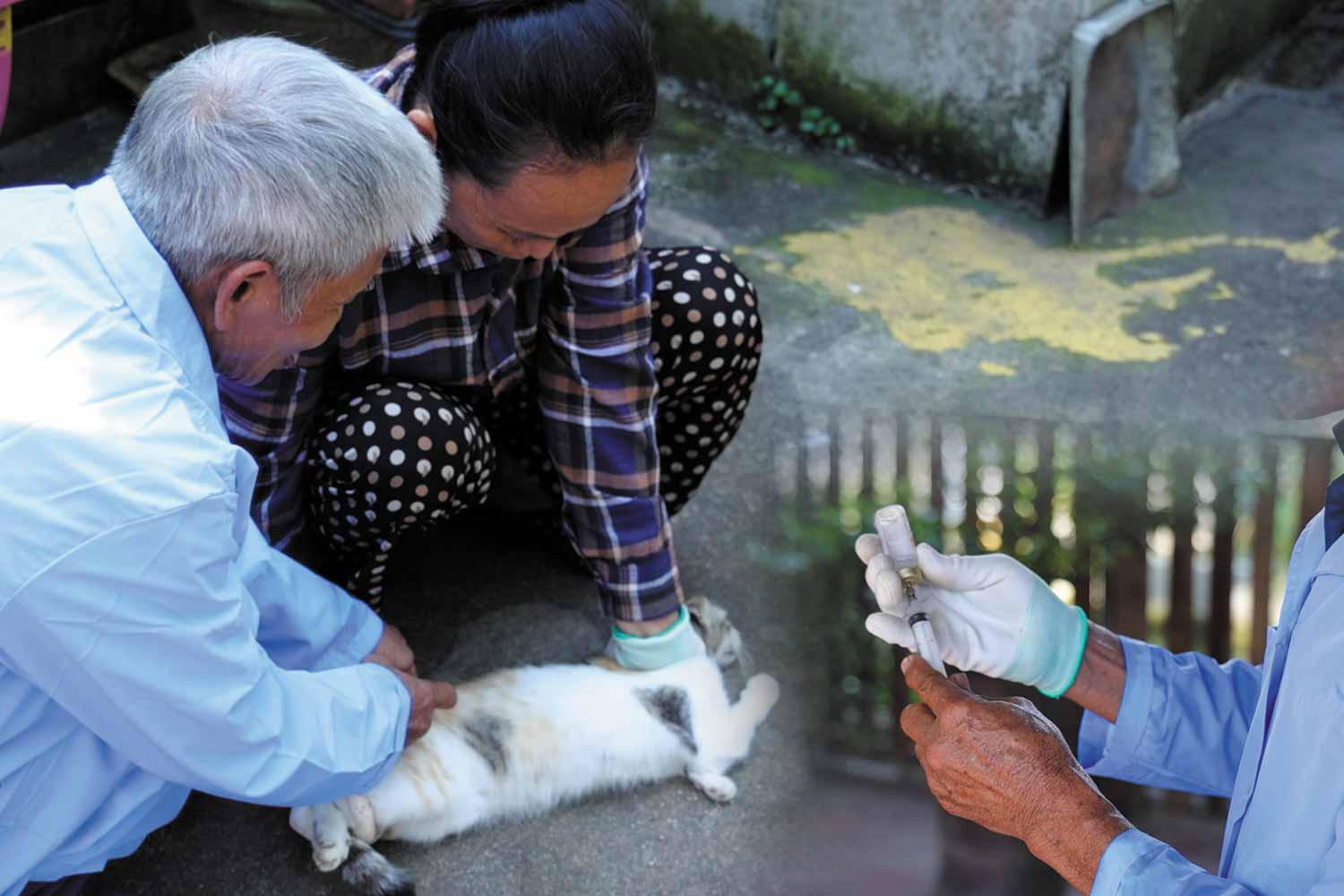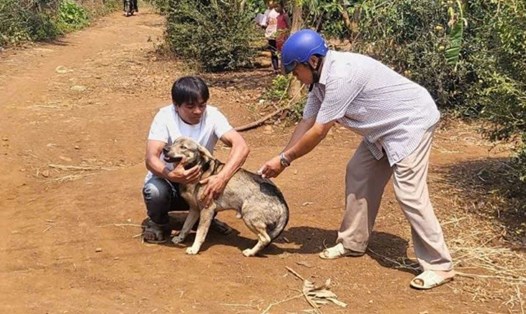Breaking the boundaries of rabies
The theme for World Rabies Day 2024 is “Breaking the Rabies Barrier”, chosen to highlight the need to move beyond the status quo. Rabies control programmes are a great example of how to run a health operation – building the structures and trust that are essential to establishing systems for other zoonotic diseases, including those with pandemic potential.
This theme calls for innovative strategies and collaboration across sectors and regions, emphasizing the importance of integrating efforts across human, animal and environmental health. This unified approach is vital in the fight against rabies, promoting a world where the disease is no longer a threat to humans or animals.
With the Zero by 30 Global Strategic Plan to eliminate human rabies deaths caused by dogs by 2030, we have a common global goal.
On the situation of rabies in humans
In 2024, the rabies situation in Vietnam continued to increase dramatically, with 22 deaths recorded in the first two months of 2024 alone, more than double the number in the same period in 2023 (10 cases).
The main cause of death from rabies in humans is that people bitten by suspected rabid animals do not receive anti-rabies serum and do not receive rabies vaccine, or receive it late, do not get enough doses, or do not receive it as prescribed.
Dog and cat management in some localities is still lax; the rate of rabies vaccination in animals is still low, reaching only nearly 50% of the total dog and cat population; in some places it is only ~10%.
Meanwhile, the National Program for Rabies Prevention and Control, 2022-2030 period, issued together with Decision No. 2151/QD-TTg dated December 21, 2021 of the Prime Minister, stipulates rabies vaccination for 70% of the total dog and cat population in the period 2022-2025.
In addition, communication work on rabies prevention and control is still limited, leading to a subjective and negligent situation in strictly implementing regulations on rabies vaccination for dogs and cats as well as dog and cat herd management; not vaccinating with anti-rabies serum and rabies vaccine in time after being bitten by a suspected rabid animal or self-treating with methods not recognized by the Ministry of Health, especially in remote areas, remote areas, and areas where ethnic minorities live.

Rabies prevention recommendations
There is currently no specific treatment for rabies, but it is completely preventable. To proactively prevent rabies, people need to take the following measures:
1. People who raise dogs and cats need to be fully vaccinated against rabies and get annual booster shots according to veterinary recommendations; dogs must be chained, locked up, and muzzled when going out.
2. Do not play with or tease dogs or cats.
3. When bitten by a dog or cat, you need to:
- Immediately wash the wound under running water with soap for 15 minutes; if soap is not available, the wound can be washed with plain water. Afterwards, the wound should be cleaned with 70% alcohol or iodine alcohol; avoid bruising the wound and do not cover the wound.
- Go to a medical facility promptly for examination, consultation and rabies vaccination and anti-rabies serum; absolutely do not self-treat or seek treatment from a traditional healer.
4. Communicate and instruct children on how to prevent dog and cat bites and immediately notify their parents or relatives after being bitten by a dog or cat.










